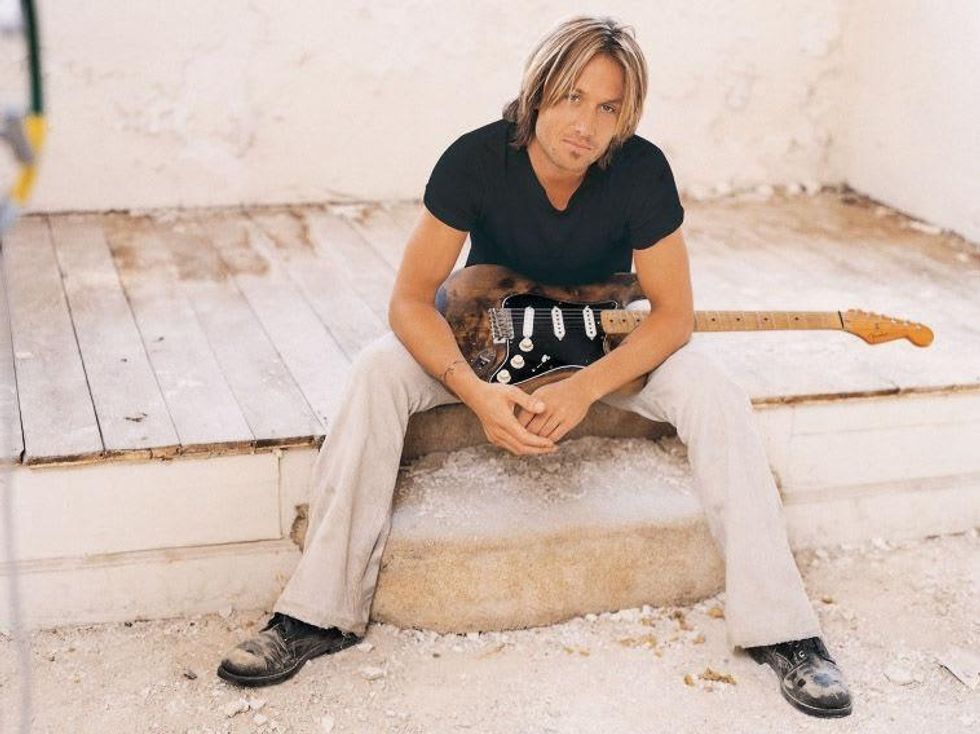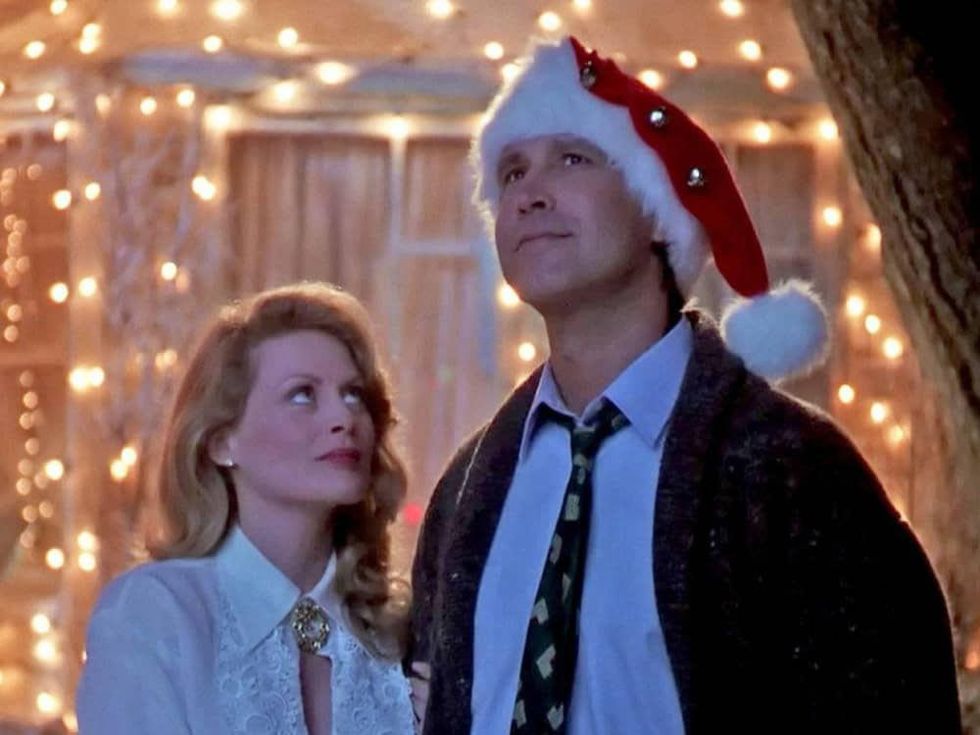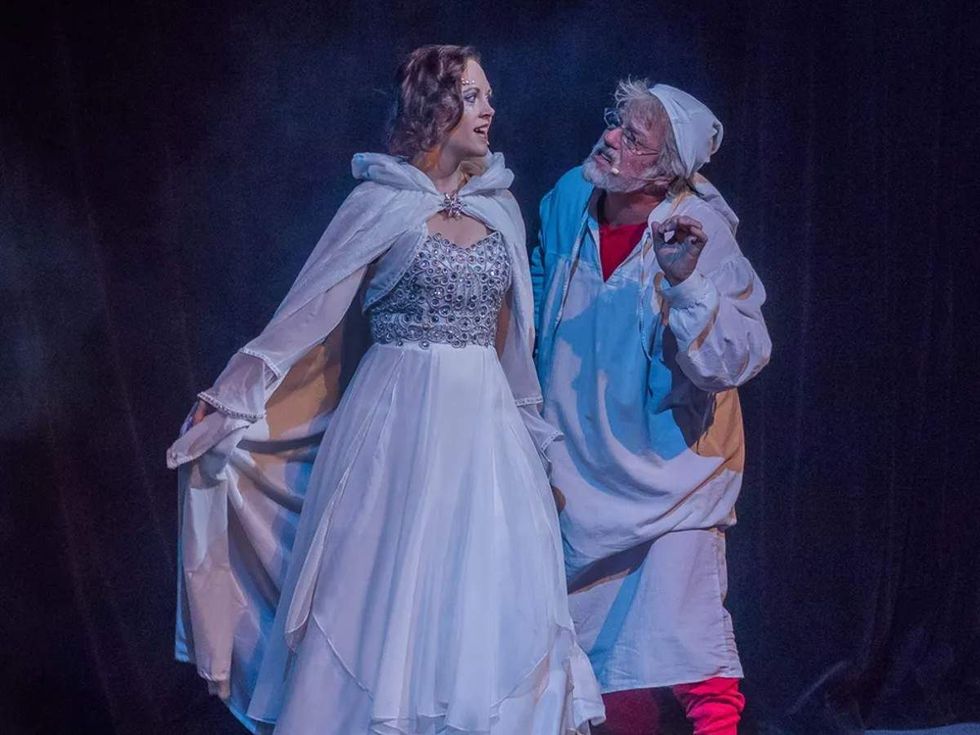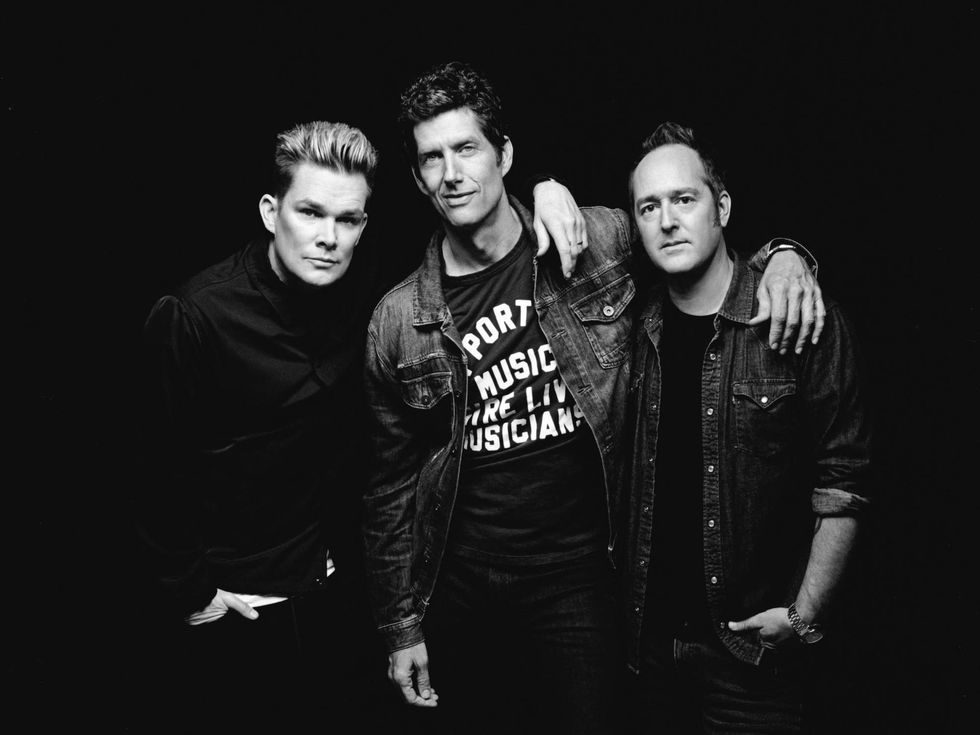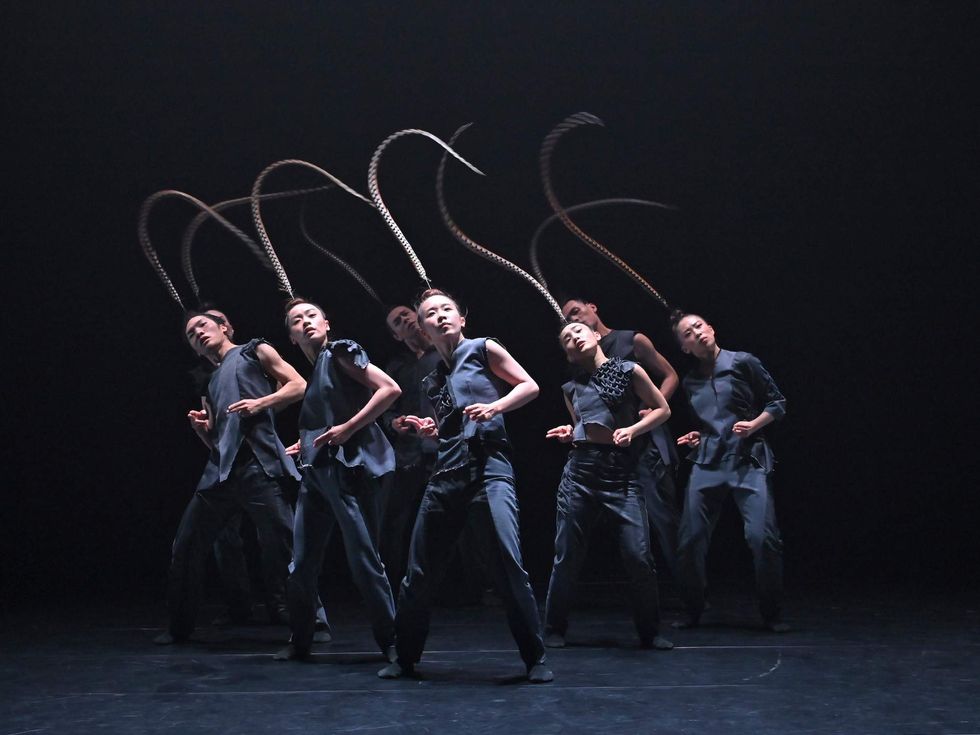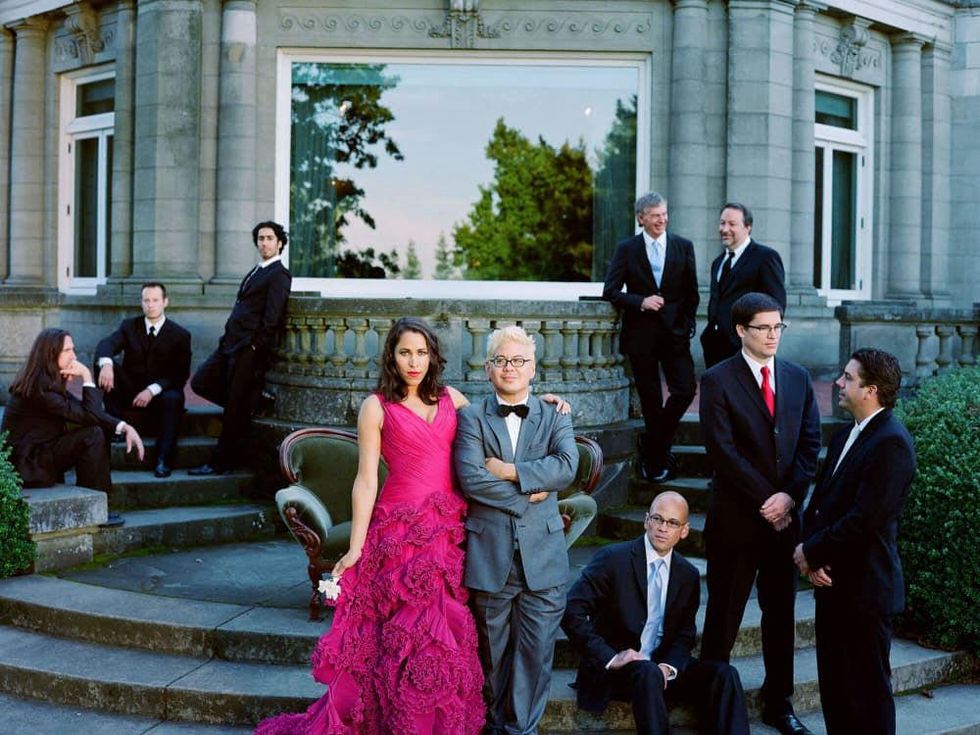The holiday event overload continues across Dallas this weekend, and there will be a nice variety from which to choose. Choices include seven separate concerts, two local theater productions, two comedians, two dance productions, a holiday festival, and a screening of a classic Christmas movie with the star in attendance.
Below are the best ways to spend your free time this weekend. If you want more options, check out the calendar for an even longer list of the city's best events. For a big list of the best Christmas lights, go here.
Thursday, December 11
Michael Martin Murphey: Cowboy Christmas
For three decades, Michael Martin Murphey's Cowboy Christmas has been a blend of music, encompassing his numerous Christmas albums, alongside his country and pop hits. The holiday celebration takes the form of a multi-media production, featuring Murphey's renowned Rio Grande Band, dramatic lighting and video, as well as the use of Western Art, master-artist photographs, and cowboy poetry. There will be performances on Thursday and Friday at Arlington Music Hall.
CeCe Winans in concert
Singer CeCe Winans is a legend in the gospel genre, having won 17 Grammy Awards - the most for any female gospel singer - and 36 GMA Dove Awards, among many others. At this special holiday show at Texas Trust CU Theatre in Grand Prairie, she'll be joined by her sisters, Angie and Debbie Winans, to sing songs from her 2024 album, Joyful, Joyful: A Christmas Album, and more.
North Texas Performing Arts presents Scrooge the Musical
In Scrooge the Musical, a family-friendly musical adaptation of Charles Dickens' A Christmas Carol, miserly Ebenezer Scrooge undergoes a profound experience of redemption over the course of a Christmas Eve night, after being visited by the ghost of his former partner Jacob Marley and the ghosts of Christmas past, present and future. The production runs through Sunday at Courtyard Theater in Plano.
Turtle Creek Chorale presents All Is Bright
The Turtle Creek Chorale is traveling around Dallas-Fort Worth over the next five days to present All Is Bright, a luminous choral program filled with music that reflects the warmth, wonder, and connection of the holidays. There will be two performances in the Dallas area: On Thursday at Lovers Lane United Methodist Church and on Monday at Meyerson Symphony Center.
Demetri Martin: The Quick Draw Tour
Demetri Martin is a writer, director, and stand-up comedian who has released three standup comedy albums and seven hour-long standup comedy specials, including his latest for Netflix, Demetri Deconstructed. He also created and starred in his own television series for Comedy Central, Important Things with Demetri Martin. Martin will bring his signature blend of witty one-liners, clever observations, and inventive visuals to Majestic Theatre.
Friday, December 12
Mic Drop Comedy presents Margaret Cho
Comedian Margaret Cho has always been the Agent Provocateur of stand up. Never one to shy away from a taboo topic, there are literally no subjects off limits. Her socially aware, no-holds-barred brand of comedy has made her both a thought leader and a tolerant teacher to those with open minds and open hearts. She'll perform four times through Friday at Mic Drop Comedy in Plano.
Grand Prairie Arts Council presents Anastasia
Anastasia transports audiences from the twilight of the Russian Empire to the euphoria of Paris in the 1920s, as a brave young woman sets out to discover the mystery of her past. Pursued by a ruthless Soviet officer determined to silence her, Anya enlists the aid of a dashing conman and a lovable ex-aristocrat. Together, they embark on an epic adventure to help her find home, love, and family. The production runs through December 21 at Uptown Theater in Grand Prairie.
Ezra Ray Hart in concert
Ezra Ray Hart is a supergroup featuring the voices of Sugar Ray, Better Than Ezra, and Tonic - Mark McGrath, Kevin Griffin, and Emerson Hart - on one stage. This concert at Texas Trust CU Theatre in Grand Prairie will feature ‘90s hits and Christmas riffs, culling the setlist from their respective hits and the greater holiday music canon.
Saturday, December 13
Dallas Black Dance Theatre presents Espresso Nutcracker
At Espresso Nutcracker, the audience will travel to a winter wonderland full of cheer, delight, and the sweetest of treats with the Dallas Black Dance Academy students as they take to the stage for an enchanting performance. Sprinkled with sugarplum fairies and a little holiday magic, it is a whimsical reimagining of a timeless tale. The performance takes place at Majestic Theatre.
The Isley Brothers in concert
Legendary soul group The Isley Brothers comes to Grand Prairie as part of their White Party tour. Known for hits like "Shout," "This Old Heart of Mine," "It's Your Thing," and more, they have released 33 albums in their career, most recently Make Me Say It Again, Girl in 2022. They'll be joined by special guests Morris Day & The Time and Evelyn "Champagne" King at Texas Trust CU Theatre.
TITAS/Dance Unbound presents HUNG Dance
TITAS/Dance Unbound will host one of Taiwan’s most accomplished dance companies, HUNG Dance. Their production, BIRDY, draws inspiration from a wide range of artistic and cultural elements. HUNG Dance (in Chinese, hung 翃, lit. to fly) reflects the aspiration to soar. Seamlessly blending Chinese opera, mythology, and Tai Chi with contemporary dance, BIRDY fuses tradition and innovation. The performance takes place at Winspear Opera House.
City Park presents Holiday Village: A Return to Candlelight
Holiday Village: A Return to Candlelight, a family-friendly holiday event that blends Candlelight traditions with new fun. Visitors can enjoy live music, strolling carolers, children's activities, a festive artisan market, and a special visit from St. Nick. The event takes place on Saturday and Sunday at City Park in Dallas.
Sunday, December 14
Texas Trust CU Theatre presents Chevy Chase and National Lampoon’s Christmas Vacation
This special event will celebrate the timeless holiday classic National Lampoon's Christmas Vacation, with a special screening of the film followed by a live conversation and Q&A with Chevy Chase, and his wife, Jayni, who will share their behind-the-scenes stories and personal anecdotes about the making of the movie. They'll also be taking questions from the audience, who will hear firsthand from Chevy about his storied career, including SNL, Caddyshack, and more. The event takes place at Texas Trust CU Theatre in Grand Prairie.
Mariachi Sol de México de Jose Hernandez presents Merry-Achi Christmas
Led by the Los Angeles-based globetrotting mariachi maestro Jose Hernandez, the Mariachi Sol de Mexico will present their annual Merry-Achi Christmas Concert. Guests can immerse themselves in the traditional Mexican carols of the holiday played by the band's 13-piece ensemble, which will showcase sounds that breathe life into this festive and joyous holiday celebration. The concert takes place at Majestic Theatre.
Pink Martini All-Stars present A Season of Stars
The Pink Martini All-Stars tour features three of the band’s favorite singers and longtime collaborators, delivering a mix of fan favorites and fresh surprises, blending classic pop, big band swing, and old Hollywood glamour. The concert takes place at Winspear Opera House.
Photo courtesy of Warner Bros. Pictures
